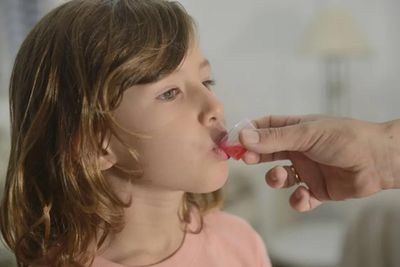Accuracy is important when it comes to taking medicine or giving medicine to family members. When the recommended dose is not followed, medicines may not work the way they are meant to or may result in an overdose.
In 2014, poison centers reported approximately 86,000 cases involving medication-dosing errors in children 12 years and younger, according to the American Association of Poison Control Centers.
Here are some tips for taking medicines safely:
- Take time to read the label and understand what's in the medicine: Follow the directions on your child's medicine closely. Know the active ingredients in your medicines. Be aware that taking two or more medicines with the same active ingredient may lead to an overdose or cause other harm.
- Choose wisely: Many medications contain multiple ingredients to treat multiple symptoms. Be aware that your child may not have all of these symptoms and may not need all of the ingredients in the medicine. Choose a medication that will only treat what's needed.
- Read and follow the directions section of the Drug Facts label to determine the appropriate dose: Many children's medicines provide dosing instructions based on weight and age.
- Use the dosing device that comes with the medicine: Even if the units of measure on the dosing devices that come with different medicines appear the same, they are not interchangeable. Dosing devices are customized to the medicine, and use of other devices or household measurement tools (such as teaspoons or kitchen spoons) may cause you to misdose medicine.
- More is not better and could cause harm: Giving your child more than the recommended dose of medicine does not mean he or she is going to get better faster, and it could have negative effects. So be sure to read and follow the label each time.
- Medicines labeled for adults are not appropriate for children.: Many over-the-counter medicines are not intended for use by children and could cause harm.
- Communication among caregivers is crucial: Of the approximately 86,000 cases reported in 2014 involving medication-dosing errors in children 12 and younger, accidental "double dosing" was the leading cause of errors. Caregivers need clear instructions on exactly what medicine to give to your child, when your child should get the medicine and how much to give.


